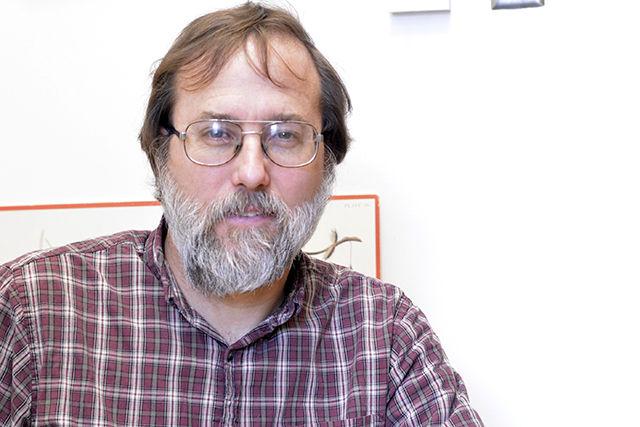Erik Thomas has had a knack for vowels ever since his youth. A linguistics professor within NC State’s English department, Thomas is now one of the world’s leading experts on American dialects.
Born and raised in Ohio, Thomas came to NC State in 1995 after acquiring his doctorate at the University of Texas. Walt Wolfram, the William C. Friday Distinguished Professor of English Linguistics at NC State, said that Thomas was the first person he hired back when the program was still in its early stages. He said that Thomas has probably analyzed more vowels and dialects than anyone in the world.
“He’s the foremost sociophonetician in the country,” Wolfram said.
Wolfram described sociophonetics as the relationship between the production of acoustics of sound and its relation to social status, which includes region, ethnicity and social classes.
What began as a childhood interest in word pronunciations developed over time into a lifelong career. Thomas said that his main area of interest deals with how language variation overlaps with phonetics.
“I’ve been interested in phonetics and pronunciation since I was a kid,” Thomas said. “It had been kind of a side interest throughout my time in high school when I got into it a little bit. When I got into college I found out about all the dialect research that had been done. That gave my interest a big spark.”
After teaching himself the International Phonetic Alphabet when he was in high school, he said he then started taking foreign language classes, where he learned about the grammatical features of language.
Thomas was recently interviewed in a Vox.com article regarding the bizarre southern accent of Kevin Spacey’s Frank Underwood on “House of Cards.” Stating that the actor’s take on southern dialects is rather unrealistic, Thomas said that southern accent features in more urban areas are diminishing.
“What we’re seeing now is the big urban centers are losing their southern accent features,” he said. “Younger people in rural areas still acquire southern accents, although it’s often not as strong as their parents’ or grandparents’. We are seeing an urban rural split within the south. How long that’ll remain is a good question. We’ll have to see about that.”
With dozens of research publications over the course of his career, Thomas often collaborates on books and papers with graduate students and other professors. In 2002, he and Wolfram wrote a book on the development of African-American speech, in which they studied an area in Hyde County in Ocracoke.
“We ended up focusing on how African Americans in the county spoke and how it was related to the local white vernacular,” he said.
Thomas said that through this research, he and Wolfram discovered key grammatical differences among these groups of people.
“My part was mostly on looking at the vowels,” he said. “The vowels were where there was a lot of assimilation between the two groups. Although you started to see some difference among younger generations. Some individuals would use exactly like the whites, and others like African Americans in other parts of the south.”
Thomas is currently working on a project on Mexican-American English in a community in southern Texas. He said that the focus is on what happens when you have influence from another language on an ethnic group and how the dialect develops as a result. This project will look at how an ethnic dialect develops out of this whole situation and what kinds of complexities exist.
Wolfram said that when he hired Thomas, Thomas’s mentor was a friend of his and recommended him.
“Hiring him was a godsend,” Wolfram said. “He’s really patient with students with the skills and expertise, he’ll sit with them for hours and teach them how to measure vowels. He’s really an amazing colleague.”
Both Thomas and Wolfram agree that exposure to linguistics even before college would benefit students greatly.
“I think linguistics should be taught in high school simply for the reason that it’s so critical to language and there are so many misconceptions about how language is structured,” Wolfram said.
Thomas said that earlier exposure to linguistics would help with any kind of foreign language instruction.
“The public, in general, tends to get fed the notion that ‘the standard’ is the language and we linguists tend to say ‘standard is just another dialect and there’s nothing sacred about it,’” he said. “In a way, we want students to understand that they don’t need to take the standard as seriously as they’re always taught to. It has its place, but there are limits to it.”








